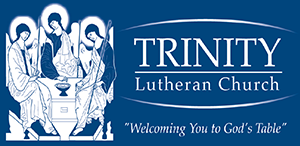Five hundred years ago, Martin Luther nailed Ninety- five Theses to the church door in Wittenberg, Germany. The Theses were invitations to discussion. The Ninety-five Theses begin with these words:
Out of love for the truth and from desire to elucidate it, the Reverend Father Martin Luther, Master of Arts and Sacred Theology, and ordinary lecturer therein at Wittenberg, intends to defend the following statements and to dispute on them in that place. Therefore he asks that those who cannot be present and dispute with him orally shall do so in their absence by letter. In the name of our Lord Jesus Christ, Amen.
The Reformation started with an invitation to discussion and debate. Luther did not start with a desire to form a new “church” that was separate from the Catholic Church. He started with the desire to discuss some important issues that he felt were negatively impacting the ministry of the Church. The sale of indulgences had become a big business, and Luther felt that this violated the biblical teaching that we are all saved by the grace of God. Indulgences remitted penalties for sin that kept souls in purgatory. In other words, by giving money to the Church, a person could have penalties on himself or herself remitted or have the penalties on a person already in purgatory remitted. The Pope had this power. Luther challenged this idea. The Pope did not look kindly on challenges to his authority. The disputes escalated, and eventually, Luther accused the Pope and the Catholic Church of missing the central truth of the gospel: we are saved by the grace of God through faith in Jesus Christ, and not by any good works we do (including giving money to the Church). The Pope and the Catholic Church responded that good works must follow from faith and are necessary for salvation. Luther and his followers were excommunicated, expelled from the Catholic Church. Not long afterward, the followers of Luther began to be called “Lutherans,” much to Luther’s dismay. Luther never wanted to start a separate denomination (the word didn’t even exist at the time), and he certainly did not want the church to be named after him.
The refocus on the grace of God and faith in Christ that the Reformation introduced was needed. It was unfortunate that the result was the fracture of the Church, which ultimately resulted in thousands of denominations, many of which think that they and only they have the truth. It takes a lot for a group with
less than 5,000 members to believe that they are right and every other Christian group is wrong, but such groups exist. And it all started on October 31, 1517 with Ninety-five Theses. There is cause for sadness.
Nevertheless, Luther was certainly right to challenge indulgences and other corrupt practices in the Church. He was also right to challenge the theology that allowed such practices. I wonder what needs to be challenged today. The Reformation started a trend that has some positive aspects and some negative aspects. The extreme fragmentation into so many denominations that don’t get along is one negative aspect. The idea that the Church is always reforming is a very positive aspect. The Reformation made it very difficult for people to think that no further change would ever be needed. If the Catholic Church could get some major things wrong, how could the Lutherans be sure that they got everything right? They couldn’t. The Reformation had to continue. The Church is always in need of reform. God is always calling us to a new reality that better reflects who God is and how much God loves this broken world.
I wonder, what are the things that need to be reformed in our church today? What do we need to stop doing? What do we need to start doing? What do we need to stop believing? What do we need to start believing? I think we are on the edge of another Reformation. The world has changed considerably since the 1500s. The Church has changed some, but we still hold on to many things that perhaps we do not need to hold onto. We Lutherans have already come a long way toward giving up the idea that we have theology right and everyone else has it wrong. Indeed, we are among the most ecumenical denominations on earth. But what else needs to be reformed? How do we need to change to be more open to the radical, life-transforming grace of God?
Maybe somebody needs to get a hammer.
